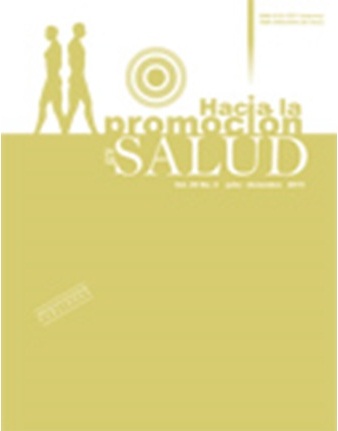Authors
Abstract
The main objective of this article is to show the social representations that a group of elderly people from the Manizales’ neighborhood, Bosques del Norte, have on old age in relation with the health–disease process. The qualitative study was conducted in the first semester of 2004, with 20 elderly subjects with ages ranging from 65 to 88 years. Open semi-structured and focus interviews were made, using a guide including the following topics: socio-demographical data, viewpoints on health, disease, old age and on the aging process. The results showed that these elderly individuals represent old age as a natural process that is closer to health than to disease and is characterized by freedom, wisdom and well–being. Old age is represented as freedom and autonomy, as their lives are presently ruled by their own laws and not by somebody else’s. Besides, they have participated in the construction of those laws or norms and their compliance results from conviction and not from obligation, as it was the case when they were young. Wisdom is represented by the acquisition of experience and knowledge which allows them to overcome “ignorance” from youth. Well– being is represented mainly by the positive attitude on life that is assumed by people in particular circumstances.
References
JODELET, Denise. En: Moscovici Serge. Psicología social. Tomos II. Paidós. España: 1999. p. 474.
Ibid.
Ibid.
GEERTZ, Clifford. La interpretación de las culturas. Gedisa editorial. España: 2000. p. 20.
Annual Report. Behavioral and social research program. Bethesda. National institute on aging. 1997-1998. En: Moñivas, Agustín. Representaciones de la vejez modelos de disminución y crecimiento. Anales de sicología. España: 1998. Vol. 14, No. 1, 13-25.
WEBER, Max. Wirtschaft und Gesellschaft. p.1. En: Schütz Alfred. La construcción significativa del mundo social. Introducción a la sociología comprensiva. España: 1993. p. 45.
CARDONA, Dora, NIETO, Eugenia, CIFUENTES, Olga Lucía. Concepto de salud para diferentes cabezas médicas: de una racionalidad instrumental a una racionalidad compleja. En: Revista Acta Estomatológica UAM. Volumen 4. No. 1 (Julio de 2001); Manizales. ISSN 0122-0748.
ALLARDT, Erik. Tener, amar, ser: una alternativa al modelo sueco de investigación sobre bienestar. En: La calidad de vida. Nussbaum, Martha y Sen, Amartya. México: Fondo de Cultura Económica, 1996. p. 126.


 PDF (Español)
PDF (Español)
 FLIP
FLIP























